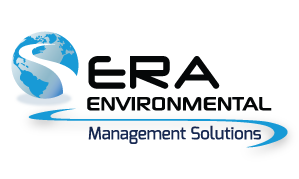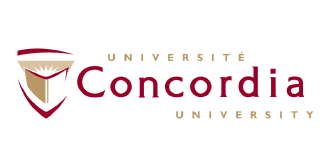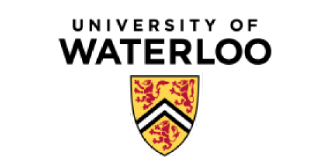ERA has a handful of ongoing research and software engineering projects that you may read about below.



The AI Mogul team is spearheading a comparative study of corporate ESG reports and consumer behaviour to raise awareness among consumers and corporations about social responsibility and the health and environmental impacts of SUPWBs. This study explores consumers' knowledge of the effects of SUPWBs on human and environmental health, how their habits contribute to plastic bottle pollution, and how various companies are handling their water bottle production by evaluating their efforts to reduce plastic bottle waste (as evidenced by their corporate ESG reports).
With the gathered knowledge, the team aims to increase consumer awareness of available alternative options and directly address the main driver for the use of SUPWBs. The team will also prioritize innovations aiming to provide alternative options to not only reduce and recycle but ultimately completely replace SUPWBs.
Packaging waste has become more prevalent over the past ten years as a result of the increase in manufactured products. Proper solid waste management is a crucial component of waste minimization and impacts how the material is frequently directed to waste handling methods with a negative environmental impact. AI Mogul is researching ways to provide companies and individuals with guidance on "what todo" with these waste materials to prevent them from ending up in landfills or being incinerated to produce energy (a source of air pollution), all the while helping them achieve UN Sustainable Development Goals (SDG) 11 and 12.
Currently, the team is preparing a detailed publication that evaluates all waste minimization aspects, including identifying different waste materials produced by various companies, formulating a workflow and decision tree that relate the type of waste to a feasible waste minimization recommendation to the same ability as a seasoned sustainability expert, and facilitating the implementation of these practices in many target companies.
2022 marked the start of ERA’s latest joint effort with Concordia University. Led once again by Professor Weiyi (Ian) Shang and CEO Sarah Sajedi, the team sought to automate the creation and execution of test cases of ERA’s dynamic platform, that way reducing the number of hotfixes and, ultimately, improving the stability of ERA’s software. The project is currently at the prototype stage: ERA and Concordia have devised a new testing framework that uses Selenium IDE to automatically record tests of ERA’s cloud-based software, Visual Studio to build those test cases from libraries of manually-wrapped code, and Jenkins to run them.
There is still a long way to go in the development of this framework, as tests frequently fail due to irreproducible errors within a test scenario’s code rather than in response to flaws in ERA’s web application, complicating the definition of what is a bug in need of a hotfix and what is a limitation on Selenium IDE’s part. ERA is preparing workarounds for the latter and gradually decreasing the “flakiness” of the produced tests, hoping to reach the point where they yield valuable data on the performance of the software and the root causes behind a bug (in the frontend or the backend) with minimal (or no) manual intervention from testers.
As a result of Professor Shang’s new tenure, ERA now collaborates with the University of Waterloo on the completion of this project (and the Performance Regression one described below).
In 2020, Sarah Sajedi (CEO of AI Mogul) and ERA-EHS, alongside NSERC and Concordia University, began working on a tool that uses AI technology to detect anomalies in data in environmental reports prepared by automotive companies. In the project’s early years, this proof of concept involved studying an automotive company’s data (Fiat Chrysler Automobiles (FCA)) and using rudimentary statistical models to attempt pattern detection and identify outliers. Once the model was established, the project evolved to allow automotive companies to monitor their environmental reporting data, such as tracking the amount of paint used in each plant and the emissions released.
In 2022, Sarah Sajedi (CEO of AI Mogul), ERA and the Concordia team finetuned the model until it could effectively flag anomalous data. Together, they published an academic journal article highlighting the challenge sin adopting artificial intelligence-based user input verification frameworks in reporting software systems and set out to continue the study by applying the developed algorithm to various types of automotive company data, including data coming from Toyota Motor Manufacturing Kentucky (TMMK) and FCA. Presently, the model can accurately detect anomalies across four different features: product usage, the quantity of the vehicles produced, the correlation between usage and production, and the percentage difference between usage and production. And by using the AI system's algorithm scoring, the model can also flag discrepancies in production and usage data. The study will continue until the model is fully integrated into reporting software systems and used by manufacturing companies to detect anomalous environmental data.
Since 2018, ERA has worked with Professor Shang’s team at Concordia University on a software tool capable of studying ERA’s system logs and isolating the causes of performance regression. The project’s initial goal was to utilize black-box performance models and machine learning techniques to plot performance against runtime activities, an endeavor that proved successful and resulted in two publications co-authored by ERA CEO Sarah Sajedi and ERA Managing Partners Steve Sporea and Andrei Toma: the first in Empirical Software Engineering (2020) and the more recent one in IEEE Transactions on Software Engineering (2022).
Lately, the focus of this project has turned toward a proactive evaluation of performance. The team is in the process of building a regression visualization tool that ERA developers could use to identify and fix anti-patterns—common patterns of action and responses to development problems in code that are unintentionally ineffective (or regressive) due to the existence of a more functional and less wasteful solution. Such a tool, which operates as a plug-in to Microsoft’s Visual Studio, could become commercially viable in the future as other development teams seek to upload less computationally expensive code to their software by way of automated suggestions to fixing anti-patterns in their code.
As a result of Professor Shang’s new tenure, ERA now collaborates with the University of Waterloo on the completion of this project (and the Automated Testing one described above).

